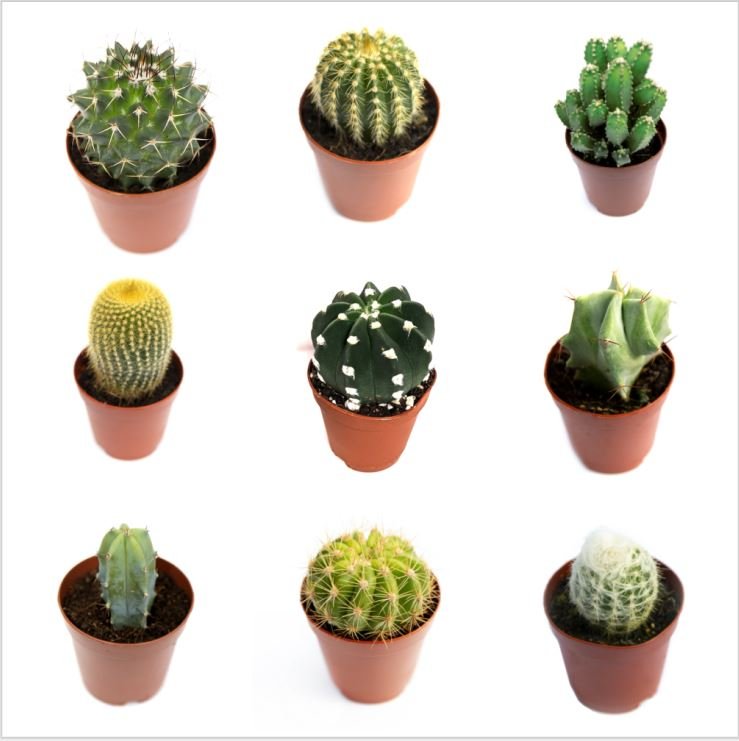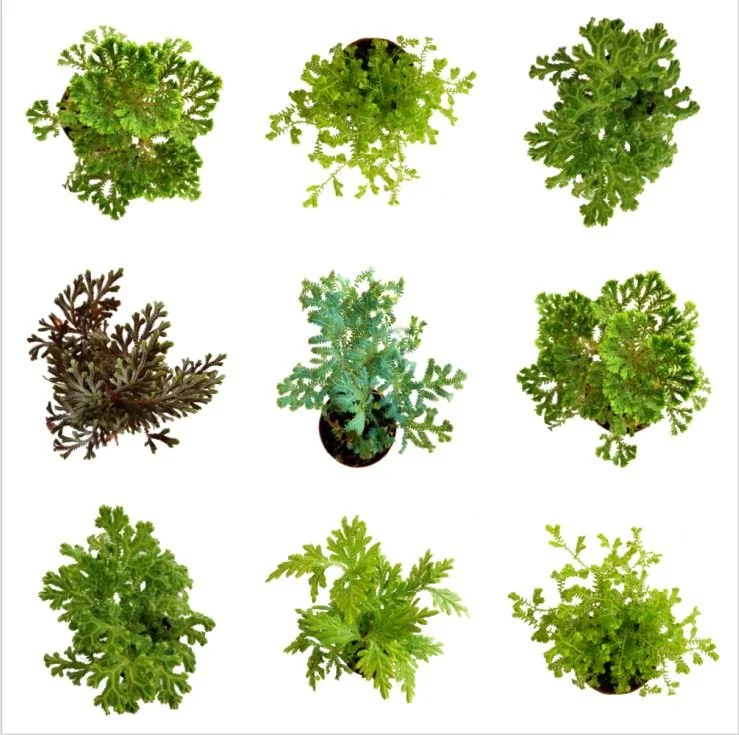plant care made simple
Air Plant (Tillandsia)
Air plants enjoy a weekly dunk. Allow them to soak for 10-20 minutes before shaking them out and putting them back on display. Air plants do best with indirect light, and can tolerate low light very well.
You may opt to mist them instead of dunking them. If you do, we recommend misting thoroughly 2-3 times per week.
Air plants are non-toxic to pets and kids.
Cacti
Cacti do best with infrequent but thorough watering about every 3-4 weeks, and bright direct sunlight. These plants are prone to overwatering, so try to think of the desert when thinking of their care! It doesn’t rain often in the desert- but when it does, it pours! If your succulent begins to look tall and lanky, it is reaching for more sunlight. Try a sunnier window, or consider adding a grow light to supplement.
Most cacti species are non-toxic, but should be kept away from pets and kids for more prickly reasons.
Calathea (Prayer Plants)
Calathea enjoy bright indirect light, regular watering before their soil dries out completely, and high humidity. These plants are perfect for terrariums!
Calathea are non-toxic to pets and kids.
Ferns
Ferns enjoy indirect light, regular watering before their soil dries out completely, and high humidity. These plants are perfect for terrariums!
Some species are toxic to pets and kids, check specific listings for more information.
Hoyas (wax plants)
Hoyas tolerate a variety of lighting conditions. With more light, the plants use up more water. Bright light will make them grow more quickly and colorfully, whereas low light will slow their growth. Water about every 10-14 days, or sooner if you notice your plants leaves are getting wrinkled or flimsy. If you give them something to climb on, their leaves will grow bigger! Check out our trellises for fun climbing options.
Hoyas are non-toxic to pets and kids.
Lipstick Plants
Lipstick plants enjoy medium indirect light, but thrive on bright indirect light. That means in order to get those characteristic lipstick blooms, it needs more sun! It likes to be kept evenly moist, so water it about every 7-10 days.
Lipstick plants are non-toxic to pets and kids.
Lucky Bamboo (dracaena Sanderiana)
Lucky Bamboo is a wonderful low-light plant as it does not tolerate bright direct light very well, and prefers low or filtered light! Since the bamboo I sell is situated hydroponically, just keep the water level in line with the top of the substrate and your plant will be happy!
Lucky Bamboo is non-toxic to pets and kids.
Monstera
Monstera enjoy bright indirect light and regular watering when the top inch of soil is dry, about every 7-10 days. If you give them something to climb on, their leaves will grow bigger! Check out our trellises for fun climbing options.
Monstera are toxic to pets and kids.
Mosses
Mosses enjoy indirect light, regular watering before their soil dries out completely, and high humidity. These plants are perfect for terrariums!
Some species are toxic to pets and kids, check specific listings for more information.
Pilea
Pilea are great beginner friendly plants. These beauties enjoy bright indirect light, and watering when their soil begins to dry out. Expect to water them about every 10-14 days. If you notice your plant is going limp before that though, give it an extra drink!
Pilea are non-toxic to pets and kids.
philodendron
Philodendron enjoy bright indirect light and regular watering when the top inch of soil is dry, about every 7-10 days. If you give them something to climb on, their leaves will grow bigger! Check out our trellises for fun climbing options.
Philodendron are toxic to pets and kids.
Pothos
Pothos tolerate a variety of lighting conditions. They are classic low-light plants, but thrive in bright indirect light. With more light, your plant will grow faster and more colorfully. They can still do just fine with low light, but you will notice less variegation and slower growth. Pothos like to be watered regularly, about every 7-10 days.
Pothos are toxic to pets and kids.
purple passion vine
Purple Passion Vines grows best in bright indirect light. If direct sun is a must, they prefer cool morning sun over hot afternoon sun as their leaves are prone to burning in hot sun. Keep this plant moist by watering about once a week. For best results, try to keep water off of the leaves. The little hairs on these fuzzy beauts can trap water and make the plant more prone to sickness.
Purple Passion Vines are non-toxic to pets and kids.
Snake Plants (sanseveria/dracaena)
Snake plants are all but indestructible. They are tolerant of all lighting conditions, so their watering schedule should be based around the amount of light they are getting. Plants receiving low to medium light will likely only need water every 3-4 weeks to maintain their health. Plants receiving high direct light will require more water to avoid burns, plan for every 2 weeks.
Snake plants are toxic to pets and kids.
succulents
Succulents do best with infrequent but thorough watering about every 3-4 weeks, and bright direct sunlight. These plants are prone to overwatering, so try to think of the desert when thinking of their care! It doesn’t rain often in the desert- but when it does, it pours! If your succulent begins to look tall and lanky, it is reaching for more sunlight. Try a sunnier window, or consider adding a grow light to supplement.
Most succulent species are non-toxic to pets and kids.
Syngonium (Arrowhead vine)
Syngonium are great low-light plants that still carry color. These plants enjoy bright indirect light, regular watering (about weekly) and room to vine! These delicate leaves are prone to sunburn, so if you notice your leaves are becoming brown and crispy, your plant is getting too much sun!
Syngonium are toxic to pets and kids.
venus flytraps
Venus flytraps are easy to care for, once you iron out the little details! Moisture is important to them, but they can be picky about the type of water they receive. Tap water is too mineral-rich for them and will burn their roots, they prefer distilled, reverse osmosis, or rain water. Bright light will keep them looking and feeling their best.
For best results, my Venus Flytraps live in a tray of reverse osmosis water directly under my grow lights.
Venus Flytraps are non-toxic to pets and kids. Unless your pet is a bug. :)
As always, reach out to us if you have any questions!
Don’t remember the name of your plant? Aren’t sure if it’s time to repot? Having trouble picking a soil mix for your planty pal? No problem! We’re here to help.

















